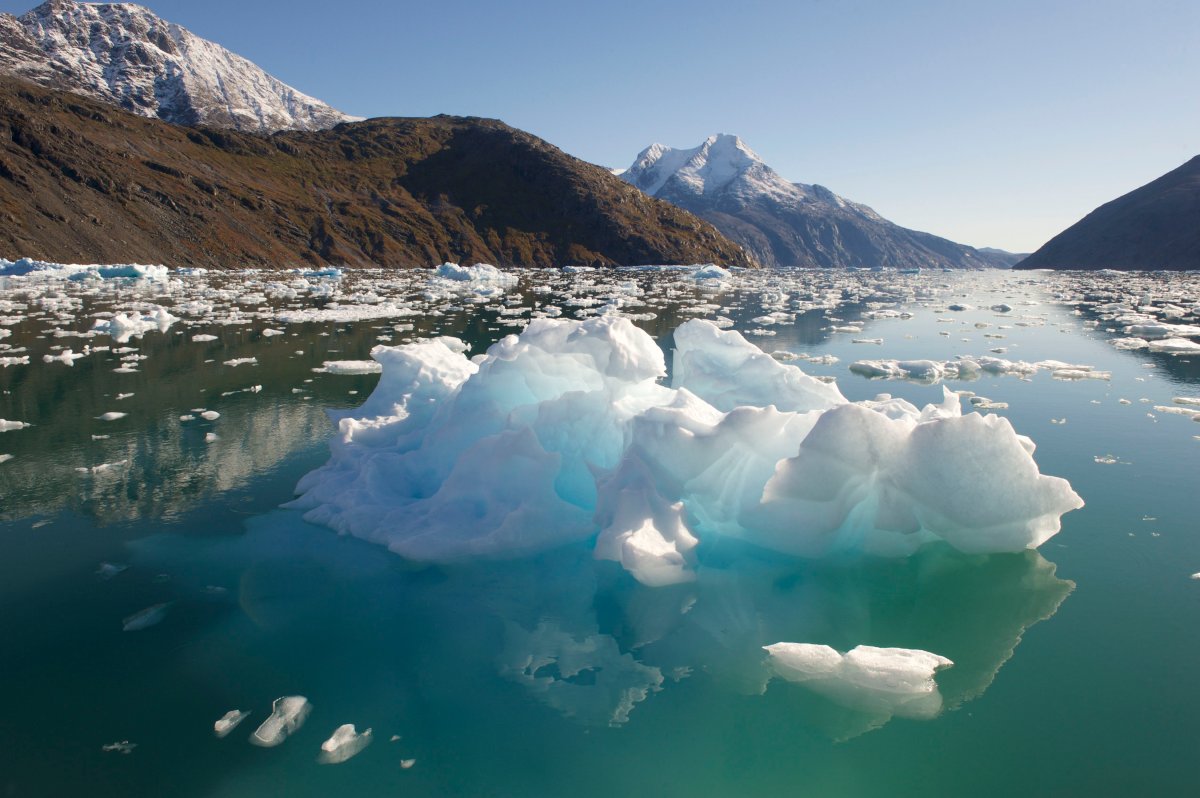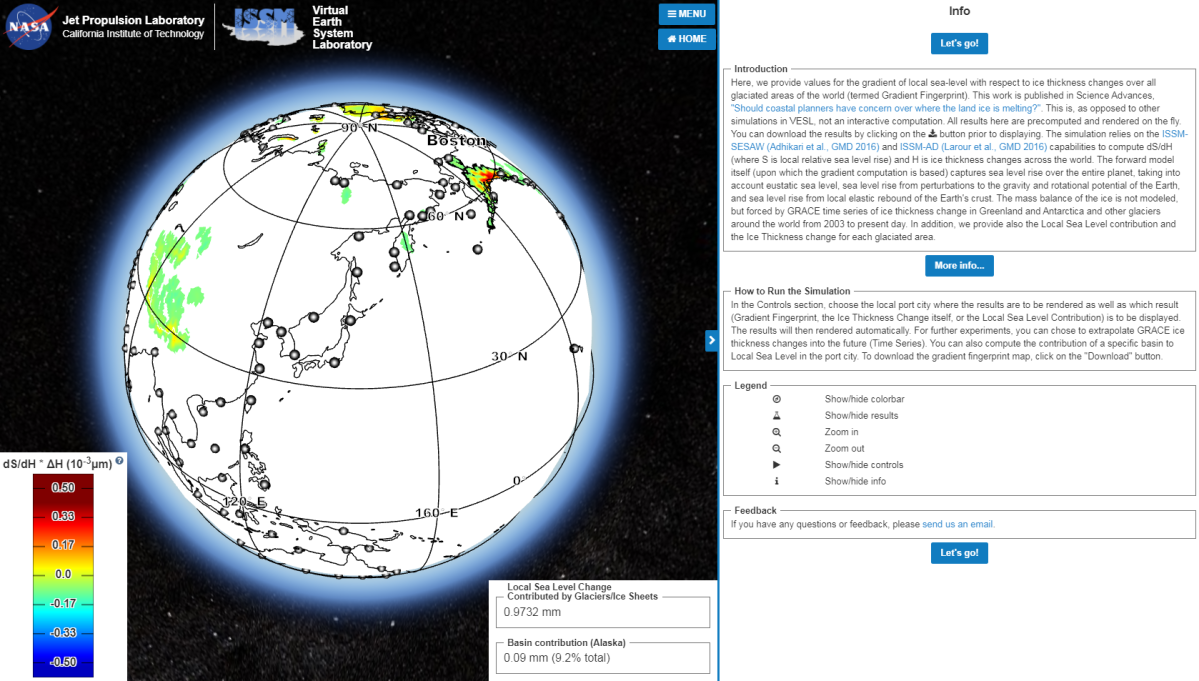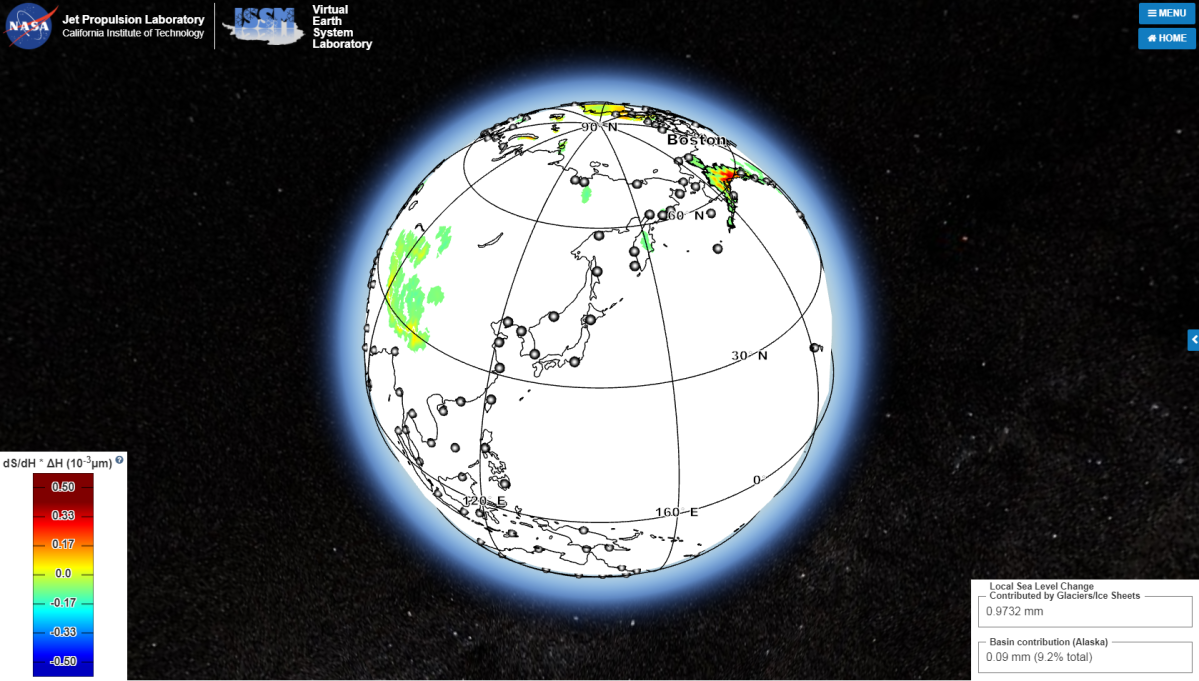A new tool developed by NASA scientists can pinpoint which glaciers and ice sheets are contributing to changing sea levels in almost 300 coastal cities.

The Gradient Fingerprint Mapping Simulation allows users to spin a virtual globe and select one of hundreds of coastal cities, which will then produce a small blurb about how much sea levels are projected to rise in the area and the name of the contributing glacier.
The accompanying study analyzes 293 major port cities and aims to let coastal planners accurately calculate local sea level changes as well as know which melting parts of the Earth’s polar ice cap present the biggest risks to each region.
Early in November, the U.S. government released a major climate change report which revealed sea levels have risen by between seven and eight inches since 1900, with the last 25 years making up almost half that increase. While sea levels were projected to rise by between one and four feet around the world by 2100, the report acknowledged that the changes will be different for everyone.
For example, the tool shows that the impact of Greenland melting will pose challenges for major metropolises like New York and London. The study reveals that as quadrants of Greenland continue to melt, both New York and London are vulnerable to rising sea levels.
While New York residents will primarily receive contributions from the northwest and northeast quadrants of Greenland, London residents should be more concerned about the northwest portion of the island.

Get daily National news
The study found that because of gravity, the biggest contributions to local sea level rise would come from glaciers and ice sheets farthest away from the cities.
For this reason, cities like Halifax and Reykjavik, Iceland, may actually see sea levels decrease.
Knowing more about how much the ocean will rise by specific dates will be extremely useful to city planners laying out strategies to mitigate this issue.
- Naval vessel launched in B.C. is longest-ever built in Canada
- Canada will see the Geminid meteor shower this week. How can you watch it?
- What’s inside Quebec, Newfoundland and Labrador’s Churchill Falls tentative deal
- Oil spill in Kerch Strait after two Russian oil tankers seriously damaged in storm







































Comments